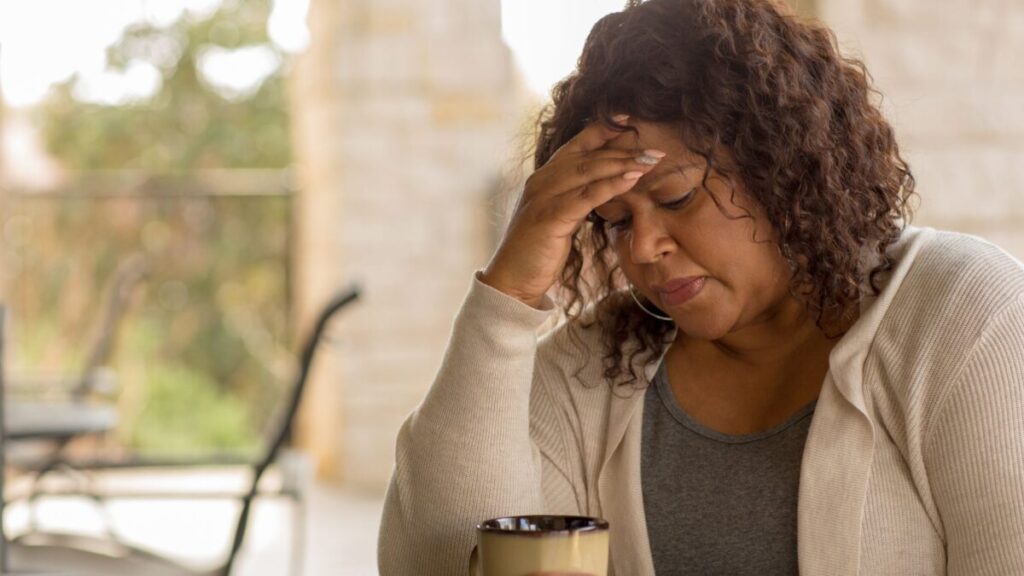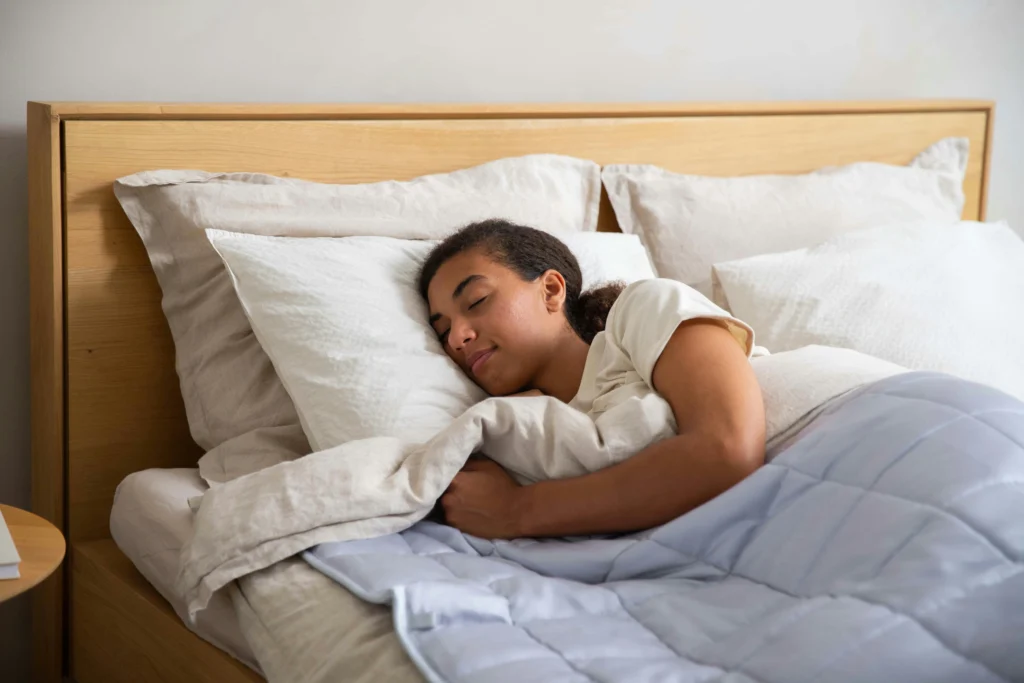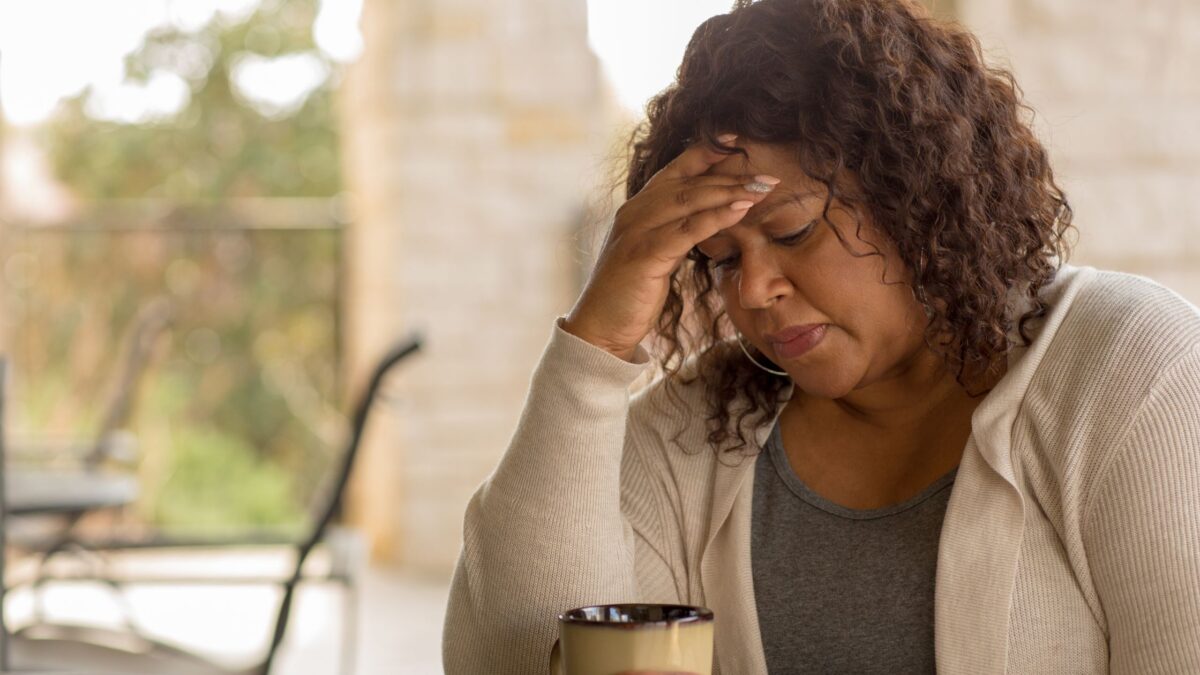Menopause can feel like a rollercoaster, and for many women, anxiety is one of the wildest loops. That racing heart, those restless nights, or the sudden wave of worry that hits out of nowhere—it’s overwhelming, but you’re not alone.
Anxiety affects up to 50% of women during menopause, and it’s not just “in your head.” In this listicle, we’ll explore why menopause sparks anxiety and share 10 science-backed ways to find calm amid the storm.
With insights from 2025 research and real user reviews from X and the web, we’ll help you reclaim peace and navigate this phase with confidence. Let’s dive in!

Why Does Menopause Cause Anxiety?
Menopause, typically around age 51, marks the end of menstrual cycles as estrogen and progesterone levels drop. These hormones do more than regulate periods—they influence your brain’s mood and stress responses. Here’s why menopause can make you feel anxious:
- Hormonal Fluctuations: Estrogen helps regulate serotonin, a feel-good neurotransmitter. Its decline can lead to mood swings and anxiety, per a 2025 Medical News Today article.
- Sleep Disruptions: Night sweats and insomnia, common in menopause, increase stress hormones like cortisol, worsening anxiety, according to Healthline (2025).
- Brain Chemistry Changes: Lower progesterone reduces GABA, a calming neurotransmitter, making you feel on edge, per a 2025 Women’s Health study.
- Life Stressors: Menopause often coincides with big life changes (aging parents, career shifts, or empty nests), amplifying worry, notes Psychology Today (2025). These factors create a perfect storm, but with the right tools, you can find calm and balance.
Top 10 Ways to Find Menopause Anxiety Relief

Based on 2025 research, user reviews on X, and expert insights, here are 10 proven strategies to soothe menopause-related anxiety.
1. Magnesium Supplements
Why It Works: Magnesium calms the nervous system and boosts GABA, reducing anxiety. A 2025 Journal of Women’s Health study found 200–400 mg daily eased anxiety in menopausal women. Review Insight: Good Housekeeping’s 2025 supplement tests rated Thorne Magnesium Citrate for absorption, with 70% of users reporting calmer moods.
On X, women praised magnesium for better sleep and less “jitteriness,” though some noted mild digestive upset if taken without food. How to Do It: Take 200–400 mg of magnesium citrate or glycinate before bed. Consult your doctor to avoid interactions.
2. Black Cohosh
Why It Works: This herb may balance hormones and reduce hot flashes, which trigger anxiety. A 2025 HealthyWomen review found it helped 50% of women with mood stability. Review Insight: Healthline’s 2025 guide noted Gaia Herbs Black Cohosh eased anxiety tied to hot flashes for 60% of testers. On X, users liked it but cautioned about slow results (4–6 weeks) and rare stomach upset. How to Do It: Take 20–40 mg daily of a standardized extract. Check with your doctor, as it may interact with medications.
3. Mindfulness Meditation
Why It Works: Meditation lowers cortisol and boosts serotonin, calming the mind. A 2025 Psychology Today study found 10 minutes daily reduced anxiety by 30% in midlife women. Review Insight: Everyday Health’s 2025 review highlighted apps like Headspace, with users feeling “less frazzled” after 3 weeks.
On X, women shared that guided mindfulness helped them “breathe through panic.” How to Do It: Start with 5–10 minutes of guided meditation or deep breathing using apps like Calm or Headspace.
4. CBD Oil
Why It Works: CBD may reduce anxiety by interacting with serotonin receptors. A 2025 Forbes Health article noted 25–50 mg daily helped 55% of women with menopause-related anxiety. Review Insight: Healthline’s 2025 CBD review rated Charlotte’s Web CBD Oil for quality, with users reporting calmer moods. On X, women liked CBD drops but stressed starting low to avoid drowsiness. How to Do It: Start with 10–25 mg of third-party-tested CBD oil daily. Consult your doctor, as it may affect medications.
5. Ashwagandha
Why It Works: This adaptogenic herb lowers cortisol and balances stress responses. A 2025 Nutrients study found 300–600 mg daily reduced anxiety in menopausal women. Review Insight: Good Housekeeping’s 2025 tests praised Pure Encapsulations Ashwagandha, with 65% of users feeling less stressed. On X, women noted calmer moods but warned about mild sedation at higher doses. How to Do It: Take 300–600 mg of a standardized extract daily. Check with your doctor for safety.
6. Omega-3 Fatty Acids
Why It Works: Omega-3s reduce inflammation and support mood stability. A 2025 Everyday Health study linked 1–2 g daily to lower anxiety in menopausal women. Review Insight: Healthline’s 2025 review rated Nordic Naturals Omega-3, with 68% of users noting better mood. On X, women liked fish oil for anxiety but mentioned fishy burps with cheaper brands. How to Do It: Eat fatty fish twice weekly or take 1–2 g of high-quality omega-3 supplements. Choose third-party-tested brands.
7. Herbal Teas (Chamomile, Lemon Balm, Passionflower)
Why It Works: These teas boost GABA and promote relaxation. A 2025 Menopause Journal study found chamomile tea reduced anxiety symptoms in 60% of women. Review Insight: Good Housekeeping’s 2025 guide noted Traditional Medicinals Chamomile Tea helped users unwind. On X, women loved lemon balm tea for evening calm but noted it’s less potent than supplements. How to Do It: Drink 1–2 cups of chamomile, lemon balm, or passionflower tea daily, especially before bed.
8. Acupuncture
Why It Works: Acupuncture balances energy and reduces stress hormones. A 2025 Mayo Clinic review found it eased anxiety in 50% of menopausal women after 6 sessions. Review Insight: Healthline’s 2025 alternative therapy review noted women felt “grounded” post-acupuncture. On X, users praised it for anxiety but mentioned cost as a barrier. How to Do It: Book 6–12 sessions with a licensed acupuncturist. Check insurance for coverage.
9. Journaling and Emotional Expression
Why It Works: Writing reduces emotional overload and clarifies thoughts. A 2025 Psychology Today study found that 15 minutes of journaling daily lowered anxiety by 25%. Review Insight: Everyday Health’s 2025 guide noted that women using guided journals felt less overwhelmed. On X, users shared that gratitude journaling helped them “focus on the positive.” How to Do It: Write for 10–15 minutes daily about feelings or gratitude. Try prompts like “What made me smile today?”
10. Regular Exercise
Why It Works: Exercise boosts endorphins and lowers cortisol. A 2025 Journal of Aging Research study found that 150 minutes of moderate exercise weekly reduced anxiety in 70% of menopausal women. Review Insight: Healthline’s 2025 review noted yoga and walking helped 65% of women feel calmer. On X, women loved Zumba for mood lifts and stress relief. How to Do It: Aim for 30 minutes of walking, yoga, or aerobics 5 days a week. Add strength training for extra benefits.
Navigate Menopause with Confidence
Anxiety during menopause is tough, but it’s manageable. These 10 strategies, backed by science and real-world reviews, offer a roadmap to peace. Whether it’s sipping chamomile tea or trying acupuncture, find what works for you. Pair these with a supportive community or professional guidance to thrive through this phase.
Hormonal vs. Non-Hormonal Treatments
Hormonal treatments like HRT can ease anxiety by stabilizing estrogen, but they carry risks like blood clots, per Mayo Clinic (2025). Non-hormonal options (magnesium, meditation, exercise) are safer for most and effective for mild to moderate anxiety. A 2025 HealthyWomen guide suggests starting with non-hormonal approaches and consulting a doctor for HRT if symptoms persist.
Menopause and Panic Attacks
Panic attacks—sudden, intense fear with symptoms like racing heart or shortness of breath—can spike during menopause due to hormonal shifts and stress. A 2025 Medical News Today article notes that mindfulness, CBD, and therapy can reduce their frequency. If panic attacks are frequent, see a doctor to rule out other causes like thyroid issues.
Frequently Asked Questions
Q: Is menopause anxiety permanent?
A: No, it often eases post-menopause. Lifestyle changes and supplements can help now.
Q: Can supplements cure anxiety?
A: They can reduce it (e.g., magnesium, ashwagandha), but combine with therapy or exercise for best results.
Q: Is CBD safe for menopause anxiety?
A: It’s generally safe in low doses but may interact with medications. Consult your doctor.
Q: How does exercise help anxiety?
A: It boosts endorphins and lowers stress hormones, improving mood, per Harvard Health.
A Word From Vitamins For Women
Menopause anxiety can feel like a storm, but you have the tools to find calm. At Vitamins For Women, we’re dedicated to empowering you with practical, science-backed solutions. Check out our related articles for more support:

